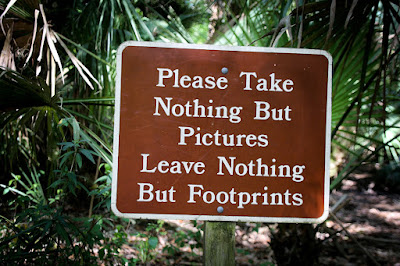Do you travel ethically?
Whether you're planning a once-in-a-lifetime trip, an international gap year, or just a vacation, you can change the world—not just for yourself but also for the people and places you encounter.
Traveling Ethically
What does it mean to travel ethically then?
Reducing your carbon footprint is only one aspect of being an traveling ethically; careful thought and preparation are also required.
The foundation of ethical travel is sustainability, which calls for a careful analysis of the economic, social, and environmental aspects of your trip.
Therefore, ethical travel means minimizing the negative effects of your trip while maximizing the benefits to the economies, environments, and host communities.
What Are The Indisputable Signs That You Travel Ethically?
Making judgments both before and during your travels is the single crucial thing you can do to become an ethical traveler.
Here are the indisputable signs that you travel ethically. We can all be proud of you for being an ethical traveler.
1. You carefully consider your packing list.
Your stylish synthetic travel jacket will keep you warm, but does it also contribute to global warming? Plus, is it made through the exploitation of locals?
Even though they smell nice, are your toiletries environmentally friendly and biodegradable?
You're making an attempt to pack as many environmentally friendly items as you can in your suitcase.
2. You travel light and leave any extra luggage at home.
It means that you're leaving the unnecessary items at home.
You only bring items that won't be available at the local market at your destination.
You're being mindful of your own trash. You're not letting your host to be responsible for your trash.
3. You research the area you're visiting as much as you can.
You're simply doing your homework.
You're learning more about the place you'll be visiting by reading travel guides and travel-related articles.
You're taking note of your destination's weather, religion, culture, tourist attractions, and local cuisine.
4. When you travel, you consider your carbon footprint.
Compared to other ways of traveling, flying may actually do greater environmental harm than by traveling by bus.
You're aware that taking the public transportation in your location is a better choice than taking a cab.
You're always looking for ways to reduce your carbon footprint.
5. You prefer to walk, hire a bike, or use public transportation wherever possible.
It's a great way to meet locals and lessen pollution at the same time.
You also get the opportunity to explore more of the city or town by taking public transportation.
6. You help the local economy by buying local.
You consider purchasing locally produced items rather than imported ones.
You prefer using local services and businesses that hire locals. It's not only lucrative for local businesses but also you get the sense of satisfaction by helping their economy.
7. You contribute to the conservation of local wildlife and their ecosystem by following the rules and regulations.
You avoid purchasing souvenirs or trinkets made from local wildlife.
You're not supporting illegal wildlife trade by not buying products made from local wildlife.
You avoid attending carnivals, festivals, or circuses that exploit animals as entertainment.
8. You show respect for the customs, traditions, and culture of the host country.
You don't travel to another country to force your own perspective and beliefs on locals.
Before taking pictures of locals, you always ask for their permission.
You think about how to act and dress appropriately to gain the respect of locals.
9. You abide by the local rules concerning drugs and alcohol.
Drug and alcohol laws vary among different countries.
In many countries, severe punishments await those who violate drug prohibition laws. That's why you follow local prohibitions on using drugs and drinking alcohol.
10. You're eager to pick up the local language.
You demonstrate respect for the locals and their culture by studying their language.
11. You're not interested in purchasing local goods at the cheapest price.
You're careful when you haggle for the best price of the local items. You don't want to be seen as taking advantage of the local vendor.
12. You favor local restaurants to international food brands.
You prefer local foods and delicacies over imported goods.
Instead of purchasing bottled water, you filter or boil your drinking water and store it in a durable water bottle.
13. You always try to use local energy as effectively as possible.
You maintain a litter-free policy and strive to use local resources like electricity and water as effectively as possible.
14. You opt to use solar-powered devices when traveling.
You always use solar-powered battery charger for all your devices to prevent wasting energy while trekking or simply traveling.
15. You don't provide treatment services when you travel to impoverished countries if you're not medically trained and certified to do so.
You donate your unused emergency supplies to nearby healthcare facilities instead of "experimenting" on the local populace.
This is not only unethical but also illegal.
16. You choose a local charity to support when volunteering abroad.
You're aware that some non-local groups frequently prioritize financial gain over helping the local community.
No one benefits from these placements not even the locals except for the non-local groups that oversee them.
Traveling Ethically is Always the Best Way To Go!
So, there you have it. I've listed the indisputable signs that you travel ethically?
Traveling ethically goes a long way towards saving our beautiful planet from destruction.
Over to you. Does traveling ethically interest you? Share your thoughts on the comments below.






